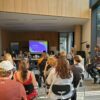(Un)framing Knowledge
Shaking the institution
The understanding of the local, national, European and international strategic issues at work in cultural environments requires diverse forms of knowledge, which are usually divided between knowledge concerning the know-how and skills and, on the other side, academic knowledge in a wide range of social, political, scientific, artistic or cultural issues. These two sorts of knowledge are, especially in European academia, mostly fed by dominant discourses and submitted to a classical epistemological framework. They also remain too often confined within the national borders of each country. Knowledge, thus considered, alters the capacity of its various recipients, be they academics, professionals, students, citizens, etc., to appreciate, produce, and use it in an autonomous and emancipated way outside the labelled frames of institutions (especially when it comes to international cooperation).The common representation of what knowledge is supposed to be makes alternative or subaltern knowledge invisible – even within contemporary European academia: submitted to funding cuts and staff reduction, it widens the gaps between mainstream and canonized knowledge and the more hidden and marginalized ways of producing it. The material presented in this thread challenges the dominant discourse on knowledge and offers new perspectives on other forms of knowing.
Further readings
- Gómez-Barris Macarena, The Extractive Zone: Social Ecologies and Decolonial Perspectives, Durham, NC, Duke University Press, 2017 (excerpts)
- Lane Jill, Marcial Godoy-Anativia and Macarena Gómez Barris, emisferica “Decolonial Gesture”, Volume 11-1, 2014, https://hemisphericinstitute.org/en/emisferica-11-1-decolonial-gesture.html
- Mignolo Walter D., Catherine E. Walsh, On Decoloniality. Concepts, Analytics, Praxis, Duke University Press, 2018
- Young Robert J. C., Post-Colonialism. A very short introduction, Oxford University Press, 2003
Keywords
Contributions
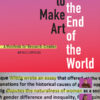
How to make Art at the End of the World: A Manifesto for Research-Creation
Keywords: diversifying learning environments, neoliberal university, research-creation, situatedness
„[..] to do research – of any kind – is not simply to ask questions ; it is to let our curiosities drive us and allow them to ethically blind us ; it is to tell stories and to pay attention not only to which stories we are telling and how we are telling them, but how they, through their very forms are telling us.“ p. 24
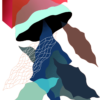
Reshape
Keywords: artistic and social innovation, arts ecosystem, collaborative models, solidarity, sustainability
The aim of RESHAPE is to imagine an alternative to the European arts ecosystem by rethinking its instruments and collaborative models, placing them in line with artistic and social innovation and the principles of fairness, solidarity, geographic balance and sustainability.
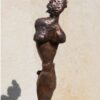
Fribourg declaration et reviewing
Keywords: cultural democracy, cultural diversity, cultural rights, recognition
In 2007, the "Fribourg group” concluded that the universality and indivisibility of human rights still suffer as a result of the marginalization of cultural rights and published the Declaration of Cultural Rights as a legal framework for cultural rights.
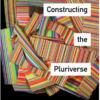
Constructing the Pluriverse: Geopolitics of Knowledge
Keywords: anti-development, decoloniality, non-western epistemology, ontological politics, pluriverse
The contributors to Constructing the Pluriverse critique the hegemony of the postcolonial Western tradition and its claims to universality by offering a set of “pluriversal” approaches to understanding the coexisting epistemologies and practices of the different worlds and problems we inhabit and encounter.
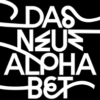
The New Alphabet
Keywords: artistic research, digitalization, global thinking, knowledge production, languages, learning practices, situated knowledge
The New Alphabet is intended both as a diagnosis and a provocation: vernacular, opaque, or marginalized ways of knowing are increasingly subsumed into abstract universalizing structures. What strategies of resistance against such processes of forced alphabetization exist or could be developed? And which role do artistic methods of appropriation and creolization play in this context?”
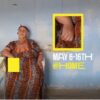
Freiburger Filmforum
Keywords: decoloniality, ethnology, eurocentrism, transcultural cinema
The film festival is particularly interested in paying attention to groups, cultures and milieus that are often overviewed by the ethnocentric gaze of many European film festivals.
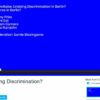
Roundtable: Undoing Discrimination? Diverse in Berlin?
Keywords: diversity, inclusion, individual and collective stories, institutional change, power structures in arts and culture
Are diversity measures in cultural institutions just another set of methods of solidifying what they claim to change? What are the inconspicuous formal routines, the small informal habits, the official and unofficial rules that create the feeling of running into a wall that one claims is not there?
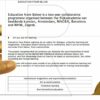
Education from below
Keywords: collective learning and imagination, embodied knowledge, meaning making in museums, multiplicity of definition
The project recognises that art practices can dislocate the usual hierarchies of what should or should not be learned and that knowledge does not have to be based on accumulation, but rather on sharing and mutual learning.
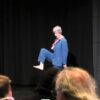
Searching for the Fountain of Age: A Danced lecture
Keywords: aging in arts and culture, danced lecture, embodied knowledge, sharing knowledge through arts
Susanne Martin proposes an alternative way of lecturing and transmitting her knowledge with a very situated approach : To look and sense her research object, the “fountain of age”, she divides it into 2 smaller fountains : the Fountain of Knowledge (talking) and the Fountain of Experience (dancing).
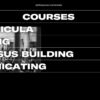
Anthropocene Curriculum
Keywords: anthropocene, experimental co-learning, international project, knowledge production, knowledge sharing
What should a body of “earthbound” knowledge contain that traverses from the global to the local and back?

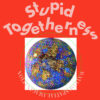
Stupid Togetherness
Keywords: collaborative practice, commonness, embodied knowledge, playful urban exploration, psychogeography, public space, subversion, urban pedagogy
The project Stupid Togetherness seeks to question existing spatial mechanisms and explore the possibilities for collaborative engagement within the urban spaces.

